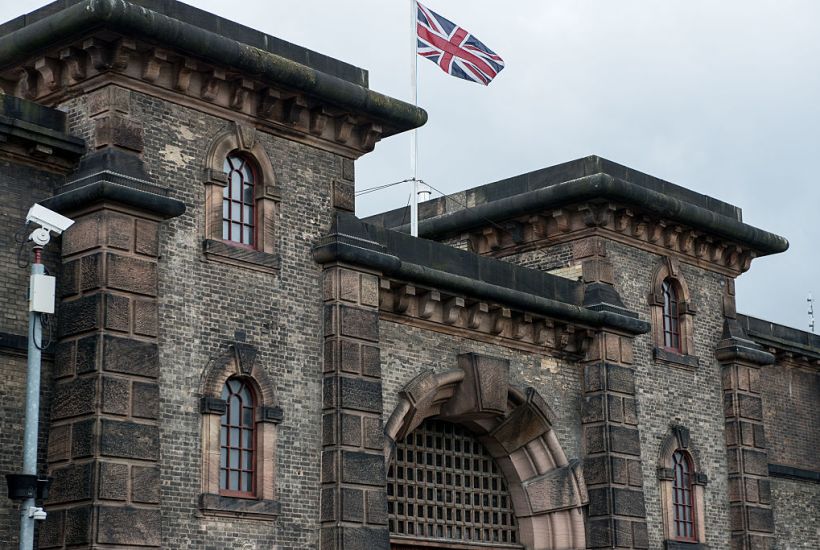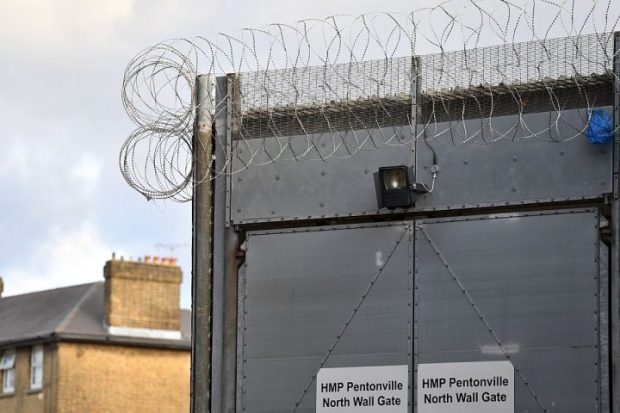David Morgan, a 35 year-old man, told staff he’d taken an overdose. A nurse decided the man seemed drunk and needed to ‘sober up’. No proper medical assessment was conducted, and staff locked him in a holding cell. Over the next two and a half hours David became ‘increasingly distressed and unwell’, ‘incapable of coherent speech’ and ‘was unable to prevent himself from repeatedly falling on the floor’.
Meanwhile the nurse, and prison staff looked on. As a result of these multiple falls, David broke his nose, fractured both legs and sustained significant bruising to his head and face. Eventually he lost consciousness, was taken to hospital and died eight days later.
The government says that prisoners ‘get the same healthcare and treatment as anyone outside of prison’, but this simply is not true. Although David Morgan’s case is an extreme and tragic example, it is not unique. In our prisons healthcare is often withheld until the moment of crisis. As a result people die who would have lived outside of prison.
Healthcare in prison is withheld for many reasons. Sometimes it’s bureaucratic inertia. I arrived at HMP Wandsworth on a Thursday night. With me I carried prescription medication in my name along with a letter from my consultant confirming my need for the medication. As a matter of policy the prison took my medication from me; it needed to be prescribed by a prison doctor. Because many prison functions don’t operate at the weekend I did not receive my medication until Monday. A prisoner prescribed antidepressants or anti-anxiety medication might encounter a similar situation. Early nights are crucial; ten per cent of prisoner suicides take place in the first three nights so an interruption in this kind of medication can be very dangerous.
Even items like paracetamol and eyedrops, which don’t require a prescription in the outside world, have to be prescribed in prison
It’s often even worse for disabled inmates. Despite policy and legal obligations, most prisons are not built for the disabled. Many prisoners are reliant on the help of fellow inmates to move around the prison, get food and or even reach and use the showers.
In my time at Wandsworth two elderly prisoners with mobility issues were housed on a higher landing of A Wing. Using walking sticks they had to struggle up and down flights of stairs for every meal. I also saw a old prisoner who was too old and frail to shower himself. He relied on the kindness of his neighbour, who helped him wash every morning.
In the case of Liridon Saliuka, the consequences of poor healthcare and disregard for disability were far more serious. Having sustained significant injuries from a car accident in 2018, Liridon was assessed as requiring a medical cell when remanded in July 2019. Initially HMP Belmarsh made the necessary adjustments, providing Liridon with a hospital bed and medical mattress. However in December 2019 prison officers forced him to move to a normal cell, despite a consultant orthopaedic surgeon concluding after that his Liridon’s disabilities were permanent. Shortly after the move, Liridon took his own life.
The inquest found that there ‘were repeated failings to consistently recognise the fact and extent of Mr Saliuka’s disability resulting in further failure to implement reasonable adjustments’ and that there was ‘confusion and misunderstanding between prison staff, healthcare staff and social services’ as to the extent of Liridon’s disability, who was responsible for assessing him, what adjustments were required and even who had recommended adjustments.
Prison healthcare departments don’t even like to provide medication. Even items like paracetamol and eyedrops, which don’t require a prescription in the outside world, have to be prescribed in prison.
At HMP Belmarsh in 2017 a prisoner slipped on the stairs of Houseblock 2 and his ankle swelled up. The man kept asking to see a doctor. Prison staff said no. After two days they allowed him to see a nurse because his ankle was still swollen. The nurse offered him aspirin and said she’d make sure he saw a doctor within 24 hours. In fact 72 hours passed with no doctor’s appointment. At this point the man’s leg and ankle had turned purple. It was only thanks to another prisoner speaking with Healthcare that the injured man saw a doctor. X-rays eventually showed that he had broken his leg.
Many prison staff are callous towards prisoners. ‘Unfortunately he’s fine,’ was one officer’s remark to me after an inmate threw himself from a high landing. In late February 2020 a man collapsed on Wandsworth’s A Wing. Officers ordered prisoners back to our cells, then gathered round the fallen man. No one gave him CPR, or attempted any medical intervention. They just waited for the paramedics.
How does this attitude develop? Prisons are traumatising environments. Noise, fear and filth are everywhere. Often just a couple of officers are responsible for a wing full of prisoners. Some burn out and leave, while others learn to switch off their natural empathy.
Liridon Saliuka’s sister, Dita says ‘too many people lose their lives in our prisons, and year after year, lessons aren’t learnt, or recommendations followed.’ She’s right. This toxic mix of disorder, bureaucratic intransigence and callous disregard for life mean that prison often kills.
Got something to add? Join the discussion and comment below.
Get 10 issues for just $10
Subscribe to The Spectator Australia today for the next 10 magazine issues, plus full online access, for just $10.



















Comments
Don't miss out
Join the conversation with other Spectator Australia readers. Subscribe to leave a comment.
SUBSCRIBEAlready a subscriber? Log in